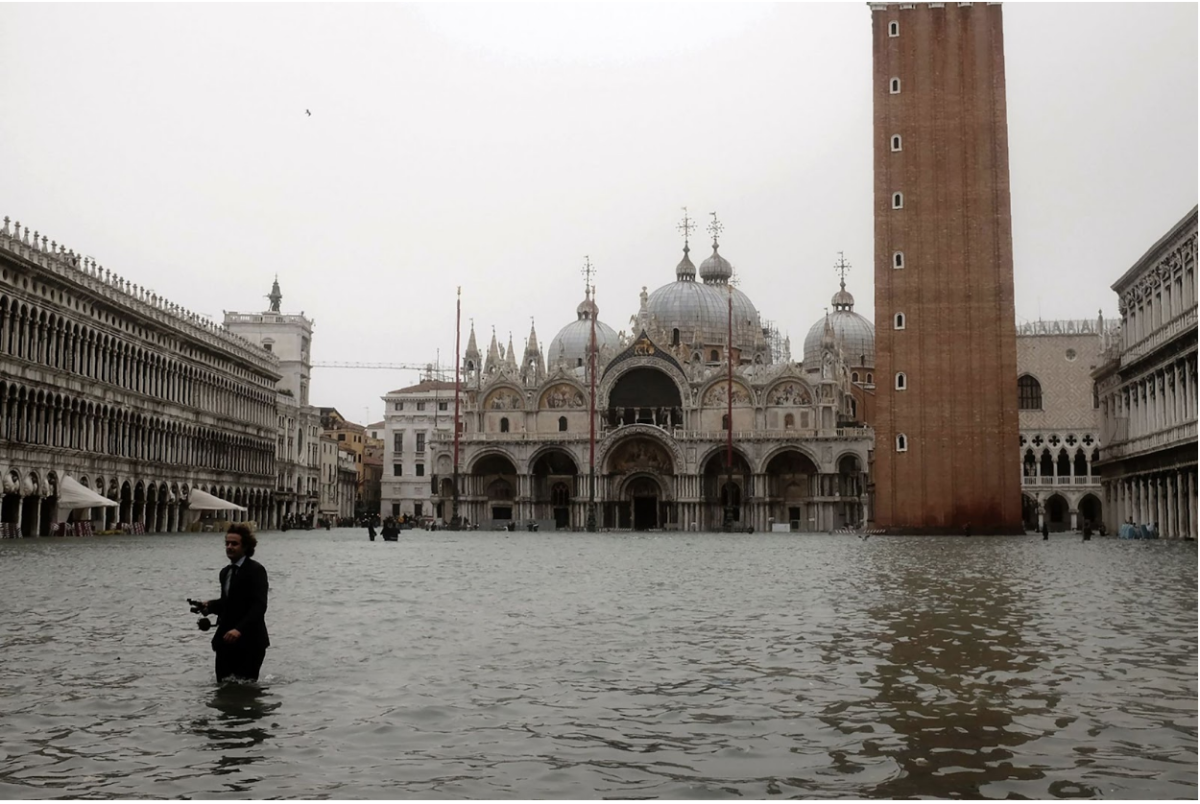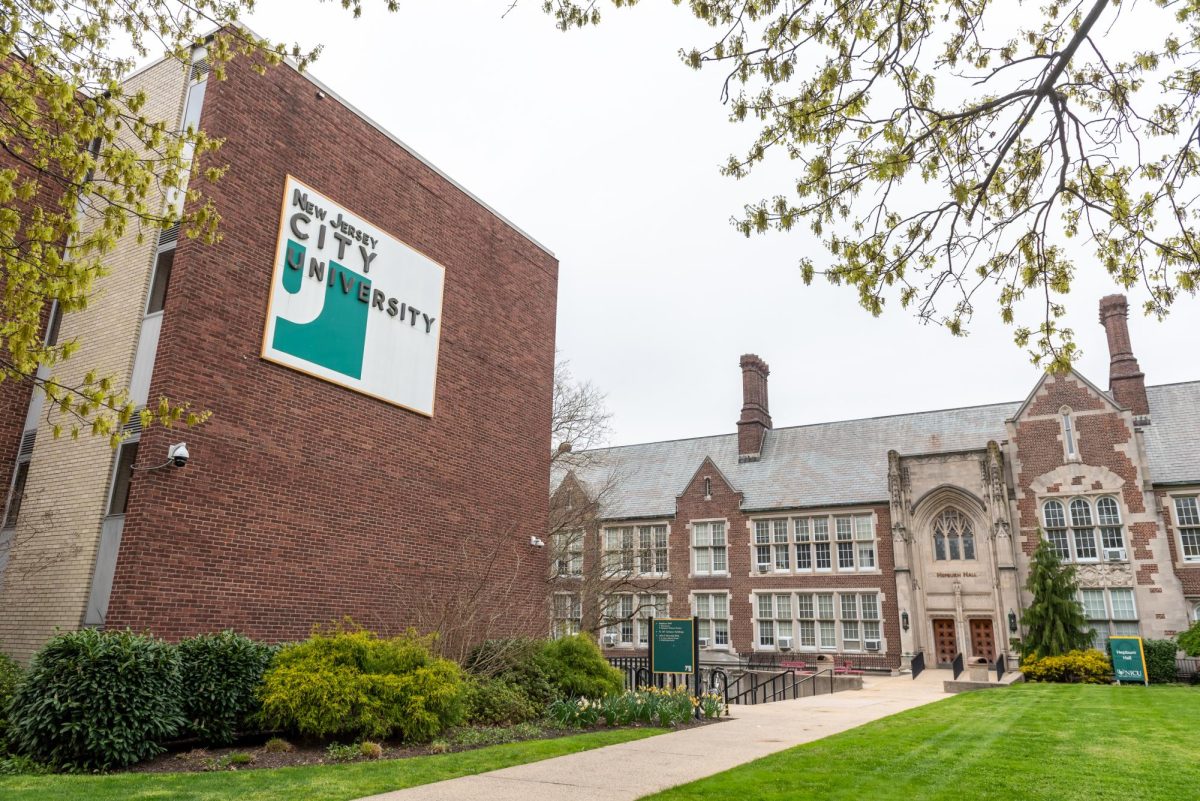By Matthew Smith and Edwin Escorelo —
New Jersey City University students, faculty, and administrators continue to pick up the pieces in the wake of the worst storm to strike the tri-state area, which caused widespread power outages, flooding, and billions of dollars in damages.
Shortly before the so called “superstorm” made landfall, New Jersey Governor Chris Christie, declared a state of emergency.
The storm lived up to its billing, flooding homes and scattering debris across the major arteries of the tri-state area.
Here in Jersey City, thousands of students were left powerless, few local stores were open, gas stations shut down, and apartment buildings and houses went dark.
SEE MORE PHOTOS OF HURRICANE SANDY
“Things got hectic in Jersey City. People were looting, shooting, and fighting over bare necessities,” said Monir Khilla, 24, Political Science/Journalism major, from Jersey City. “I spent a lot of nights outside trying to charge my phone on a solar-power paneled light pole and getting to know my neighbors, whom I never knew before.”
All NJCU students were left in a state of uncertainty regarding when the University would open. Administrative teams from NJCU met throughout the ordeal to asses the feasibility to reopening the university and deal with problematic scheduling issues.
Dorm students left on campus were evacuated to GSUB and were allowed to go to their rooms in order to get their medication if necessary. In GSUB, students were addressed by staff members and informed that they would be spending the night at GSUB, but were only supplied a few pillows and blankets, not enough for the students left on campus.
“I think NJCU did not respond well to the hurricane because transportation was still not running and commuters had a difficult time getting to campus,” said Kevin Orozco, 19, Criminal Justice, Jersey City.
Stranded dorm students table cloths left from a banquet that had taken place a few days earlier and proceeded to make bedding out of them. There were many students who were left to sleep on the cold floor or on seats that were left around the room.
“I think the school responded as best as they could. It could have been better if they could have more generators so dorm students could stay in the dorms instead of GSUB. That was unfortunate,” said Jimmy Debe, 18, Marketing, West Orange.
The outage closed down NJCU for a week and damaged some of the campus.
Janet Tanke, an adjunct English professor said, “My students weren’t able to do my homework.” Tanke mentioned that 90 percent of her students were left without power and that the administrators were aware of the students’ plight.
Tanke saw the closure of the university as essential but wasn’t elated about the lost class time.
Annamarie Scrazati, Philosophy Department secretary, said that she had five feet of water and the basement was neck level at her home in Bayonne Country Village. When asked about her hometown’s condition Annamarie said, “When you’re in that street it’s like a war zone.”
The decision for the week closure brought relief for Annamarie who was preoccupied with the damage that the storm had done to her property.
In response to the level of security NJCU’s Division of Administration collaborated with CIRT Team, Public Safety, the Offices of Student and Academic Affairs and University Advancement.
In an e-mail interview with Ellen Wayman-Gordon, NJCU Assistant Vice President for University Advancement for Public Information and Community Relations, she said, “Public Safety supervisors and officers worked long hours with great dedication, remaining on campus with other essential personnel from the Facilities and Housekeeping Departments.”
Despite Sandy’s force, calls were taken and the safety of the campus community was addressed with swift vigilance.
Wayman-Gordon, said, “The University monitored weather information and activated the CIRT team for several days before Hurricane Sandy hit New Jersey.”
The university utilized arsenals from its digital division. “GothicAlert notifications went to over 5,000 students and employees within moments via telephone, text messages, and e-mail,” said Wayman-Gordon.
Adjustments were made for displaced students who remained on campus as Sandy stormed the city.
“The Residence Life staff worked with others to make students as comfortable as possible in the Gilligan Student Union when power went out in residence halls and students was relocated to the Multipurpose Room,” said Wayman-Gordon.
The improvement of the weather was permissible and so some resident students chose to go home. On campus there are 265 resident students, but by Thursday November 1 that number had slid down to 45.
For the remaining residents telephone access for communication was provided as well as television and charging stations. Resident Gothics were supplied clothing and vital provisions,
and were provided with meals.
“One night, a hot grilled salmon dinner was served!” said Wayman-Gordon.
When asked about the rumor that the campus continued to run on generators in Sandy’s aftermath Wayman-Gordon said, “the Facilities Department plans for power outages and keeps generators on campus to maintain operations.”
NJCU’s mission in the aftermath has been to resume educational endeavors while security of the campus community is emphasized.
“When electricity went out on the Main campus, generators were used to maintain critical services in a number of buildings that were deemed essential to University operation,” said Wayman-Gordon.
Energy was used judiciously at the university in light of the precarious circumstances that the storm and its aftermath presented.
Wayman-Gordon said, “The prolonged power outage necessitated careful monitoring of fuel and awareness of critical operational needs, among them the safe sheltering of students on campus, and the operational needs of Public Safety, CIRT, and Information Technology.”
Administrators were mindful of the citywide curfew as well as the NJCU body’s plight when they decided to reopen the main campus.
“When the University opened on Monday, November 5, emergency academic scheduling and business plans were implemented immediately,” said Wayman-Gordon.
As academic life resumed the administrators heard the concerns that professors had regarding students gaining credit for a whole semester after losing a week of class. NJCU scholars pay tuition for a whole semester’s worth of education and to receive less would be a disservice.
However, “Deans and the Vice President for Academic Affairs worked collaboratively with the Registrar to devise a plan that would provide all classes with adequate alternate scheduling to provide make-up sessions for instruction that was lost because of Hurricane Sandy.”
Professors would have to discuss with their students which dates would be good for them to recoup the lost session and NJCU will continue to work to serve its student body, while ensuring their safety as the fall semester moves forward
“Whenever possible, events and programs cancelled by the storm will be rescheduled. The Gothic spirit is strong here at NJCU,” said Wayman-Gordon.







